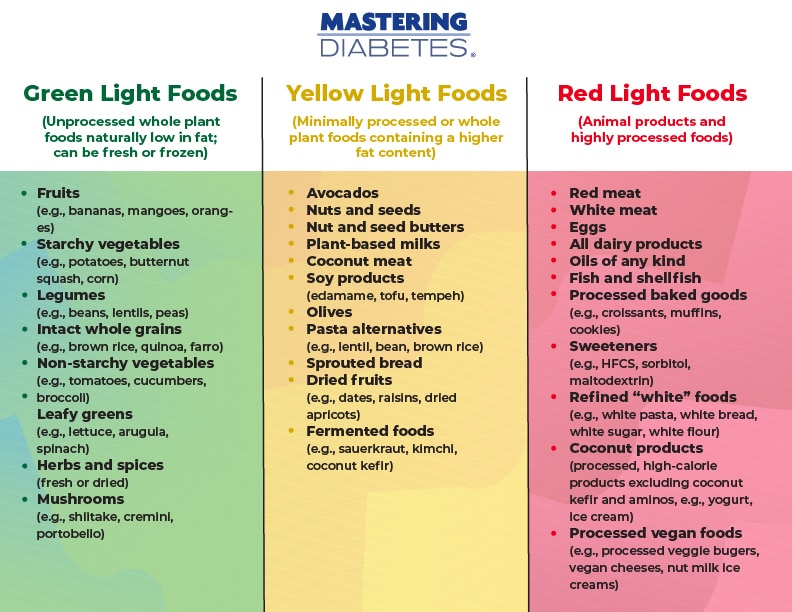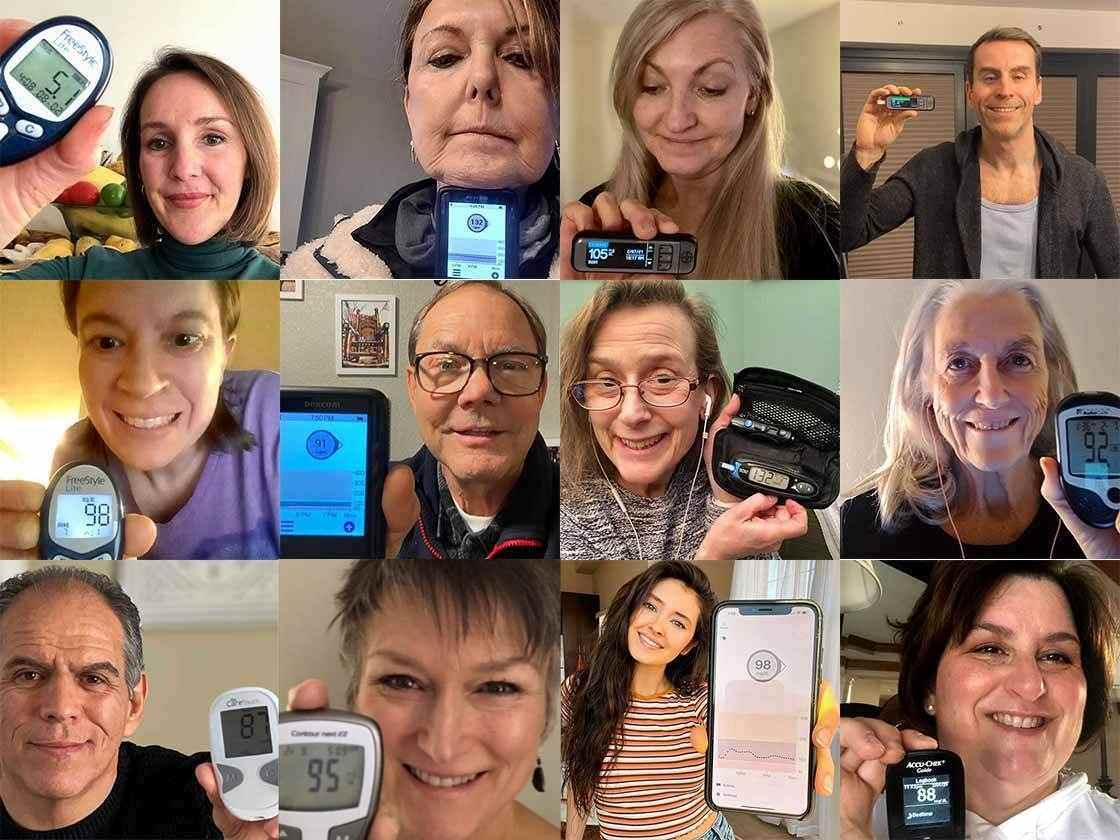Here at Mastering Diabetes, we like to keep things as simple as possible for you.
When it comes to nutrition, things can get particularly complicated. It’s easy to get lost in the weeds when searching for information on the internet.
To make things simple, we’ve set up a chart where you can see which foods we recommend and which foods we suggest avoiding to maximize your diabetes health.
This is our recipe for success when it comes to reversing insulin resistance.
There are 3 categories:
- The green light category contains the foods that you can eat ad libitum (i.e. as much as you want). These are all unrefined whole foods. They are optimal for reversing insulin resistance and there is no need to limit how much to eat.
- The yellow light category contains foods that you can include in small quantities, because they are either slightly processed or have a higher fat content. They shouldn’t be daily staples, but they are still considered “healthy” choices.
- The red light category contains the foods that we recommend removing from your fridge, your kitchen cabinets, and most importantly your plate. These foods have been documented by evidence-based research to cause insulin resistance, increase your blood glucose, and promote chronic diseases.
Green Light Foods (Unprocessed whole plant foods naturally low in fat; can be fresh or frozen) | Yellow Light Foods (Minimally processed or whole plant foods containing a higher fat content) | Red Light Foods (Animal products and highly processed foods) |
|---|---|---|
Fruits (e.g., bananas, mangoes, oranges) | Avocados | Red meat |
Starchy vegetables (e.g., potatoes, butternut squash, corn) | Nuts and seeds | White meat |
Legumes (e.g., beans, lentils, peas) | Nut and seed butters | |
Intact whole grains (e.g., brown rice, quinoa, farro) | Plant-based milks | All dairy products |
Non-starchy vegetables (e.g., tomatoes, cucumbers, broccoli) | Coconut meat | |
Leafy greens (e.g., lettuce, arugula, spinach) | Soy products (edamame, tofu, tempeh) | Fish and shellfish |
Herbs and spices (fresh or dried) | Olives | Processed baked goods (e.g., croissants, muffins, cookies) |
Mushrooms (e.g., shiitake, cremini, portobello) | Pasta alternatives (e.g., lentil, bean, brown rice) | Sweeteners (e.g., HFCS, sorbitol, maltodextrin) |
Sprouted bread | Refined “white” foods (e.g., white pasta, white bread, white sugar, white flour) | |
Cell | Dried fruits (e.g., dates, raisins, dried apricots) | Coconut products (processed, high-calorie products excluding coconut kefir and aminos, e.g., yogurt, ice cream) |
Cell | Fermented foods (e.g., sauerkraut, kimchi, coconut kefir) | Processed vegan foods (e.g., processed veggie bugers, vegan cheeses, nut milk ice creams) |
For the most part, foods in the green light category is almost always full speed ahead, and the red light category is always stop, drop, and roll on back to the green light foods.
The yellow light category is where you experience some nuanced and personal variation based on your lifestyle, current health status, and goals.
Like anything, there are always exceptions. For instance, if you are in the initial transition phases of switching to a high-carbohydrate, plant-based diet and are experiencing spikes in your blood glucose after eating starch-heavy or fruit-heavy meals, it may be best to focus on leafy greens, legumes, and non-starchy vegetables until your blood glucose control improves.
The table above and the image below should give you a solid foundation to guide your transition to a low-fat, plant-based, whole-food lifestyle to reverse insulin resistance and gain control over your diabetes health.

*If you would like personal guidance in making the transition or adjusting your diabetes nutrition to fit your personal needs (with interesting recipes that'll make eating green light a breeze), you can work with our coaches in the Mastering Diabetes Coaching Program.
Lower Your A1c and Get to Your Ideal Body Weight ... Guaranteed

Your results are guaranteed. Join more than 10,000 ecstatic members today
Personalized coaching puts you in immediate control of your diabetes health, helps you gain energy, improves your quality of life, and reduces or eliminates your meds.

